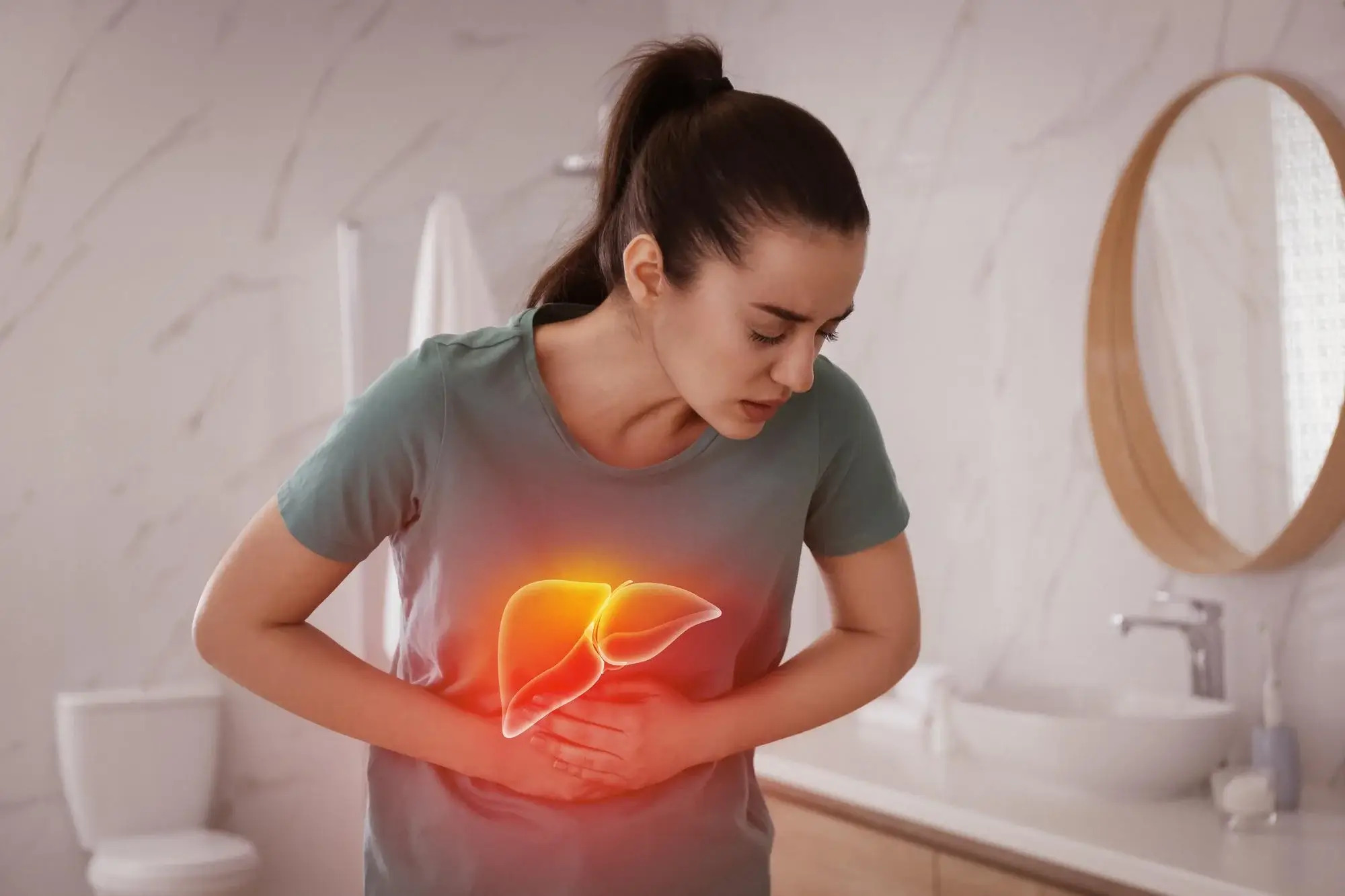Cirrhosis is a late stage of scarring (fibrosis) of the liver caused by many forms of liver diseases and conditions, such as hepatitis and chronic alcoholism.
Each time the liver is injured whether by disease, excessive alcohol consumption or another cause it tries to repair itself. In the process, scar tissue forms. As cirrhosis progresses, more and more scar tissue forms, making it difficult for the liver to function (decompensated cirrhosis). Advanced cirrhosis is life threatening.
SYMPTOMS
- Fatigue
- Easily bleeding or bruising
- Loss of appetite
- Nausea
- Swelling in legs, feet or ankles (edema)
- Weight loss
- Itchy skin
- Yellow discoloration in the skin and eyes (jaundice)
- Fluid accumulation in your abdomen (ascites)
- Spiderlike blood vessels on your skin
- Redness in the palms of the hands
- For women, absent or loss of periods not related to menopause
- For men, loss of sex drive, breast enlargement (gynecomastia) or testicular atrophy
- Confusion, drowsiness and slurred speech (hepatic encephalopathy)
CAUSES
- Chronic alcohol abuse
- Chronic viral hepatitis (hepatitis B, C and D)
- Fat accumulating in the liver (nonalcoholic fatty liver disease)
- Iron buildup in the body (hemochromatosis)
- Cystic fibrosis
- Copper accumulated in the liver (Wilson’s disease)
- Poorly formed bile ducts (biliary atresia)
- Alpha-1 antitrypsin deficiency
- Inherited disorders of sugar metabolism (galactosemia or glycogen storage disease)
- Genetic digestive disorder (Alagille syndrome)
- Liver disease caused by the body’s immune system (autoimmune hepatitis)
- Destruction of the bile ducts (primary biliary cirrhosis)
- Hardening and scarring of the bile ducts (primary sclerosing cholangitis)
- Infection, such as syphilis or brucellosis
- Medications, including methotrexate or isoniazid
Risk factors
- Drinking too much alcohol
- Being overweight
- Having viral hepatitis
COMPLICATIONS
- Portal hypertension
- Swelling in the legs and abdomen
- Enlargement of the spleen (splenomegaly)
- Bleeding
- Infections
- Malnutrition
- Buildup of toxins in the brain (hepatic encephalopathy)
- Jaundice
- Bone disease
- Increased risk of liver cancer
- Acute-on-chronic cirrhosis
HOMOEOPATHIC REMEDIES
Carduus marianus: It is among the top natural medicines for treating Cirrhosis of Liver. It covers a wide range of symptoms that can be relieved with its use. The first condition calling for its use is jaundice. The second is dropsical accumulation of water in abdomen. The next field is bleeding consequent to liver damage. Liver pain and sensitiveness are experienced by most patients needing Carduus marianus. This medicine is also beneficial for patients who feel fatigued or tired and have bouts of nausea and vomiting due to Liver Cirrhosis. Abuse of alcoholic drinks is usually found among persons needing remedy Carduus marianus.
Lycopodium: It is a natural medicine for treating Cirrhosis of Liver when the liver has atrophied due to longstanding Cirrhosis. The liver region is sensitive. Hepatitis may be predominantly present. Dropsical conditions consequent to Liver Cirrhosis respond very well to Lycopodium. Therefore, Lycopodium is considered as one of the best remedies for liver damage. This medicine can also help patients of Cirrhosis who have a loss of appetite. Eating a small quantity of food brings satisfaction. Such a patient feels fullness in abdomen from eating a small quantity of food. Bloated feeling in abdomen and gas in abdomen remains a constant feature. Lycopodium can also help provide relief in the general condition of patients who have lost weight, and have become emaciated and thin under the effects of Cirrhosis of Liver. The patients needing Lycopodium may have an increased desire for hot drinks, hot food or sweets. There is a general worsening of symptoms in evening time around 4pm among a few patients.
Arsenic album: Natural medicine Arsenic album is of great help for patients of Liver Cirrhosis who experience fatigue as the main symptom. The patient feels totally exhausted from doing a little labour. He or she goes on losing weight due to debilitating effects of Cirrhosis of Liver. Arsenic album is also the remedy for patients who experience nausea and vomiting of blood. Along with vomiting, burning in abdomen is a characteristic feature pointing towards the use of Arsenic album. Vomiting follows drinking and eating. The liver region feels painful. Ascites, or accumulation of fluid in abdomen, can also be dealt with by remedy Arsenic album, though the general symptoms of fatigue and burning in abdomen should match too. A general relief from taking warm drinks may be narrated by patients in addition to the above symptoms. If the mental picture is to be considered, the symptoms that assume top position are anxiety, restlessness and fear of death.
Nux vomica: It is a natural medicine of great help for patients of Liver Cirrhosis who have a history of long-term alcoholic abuse. Such patients usually also have been sufferers of chronic acidity and constipation. The acidity symptoms including heaviness in abdomen and burning in abdomen a few hours after meals. The constipation is marked by scanty, insufficient stool or poop but with a constant urge to pass stool. Nux vomica can help to decrease soreness or pain in liver region. The pain may present itself as stitching in character. The patients needing remedy Nux vomica usually have an inclination to take highly spicy diet, stimulants like coffee and alcoholic drinks and fat. The constitutional symptoms that need to be mentioned are mentally angry and irritable nature, being sensitive to external impressions like noise and odour and also, sensitivity to cold air.
Phosphorus: It is a beneficial natural medicine for treating jaundice in patients with Cirrhosis of Liver. The symptoms during jaundice are yellow appearance of skin, and passage of stool of a very offensive nature. Utmost weakness follows the passage of stool. The second sphere where Phosphorus is a remedy of great help is vomiting of blood. Phosphorus has an excellent effect in controlling the blood appearing in vomitus. Apart from these symptoms, the desire for cold drinks, juices and ice creams is usually present in patients needing Phosphorus.





